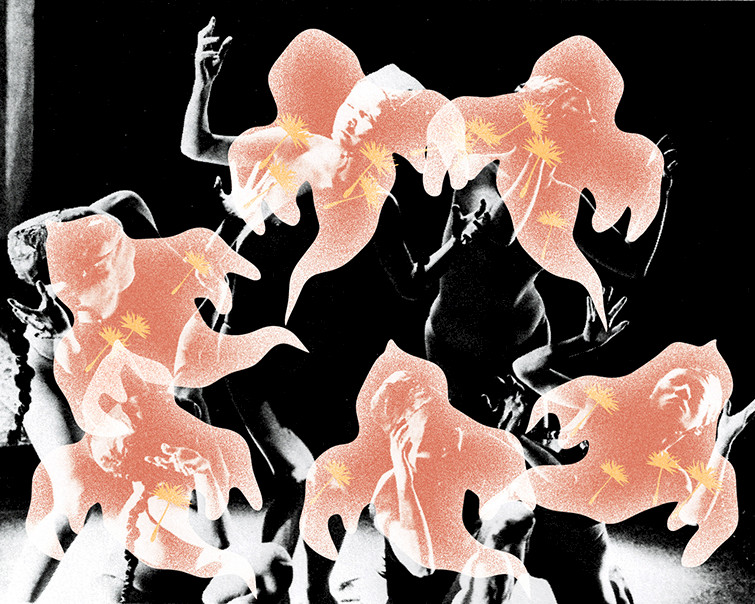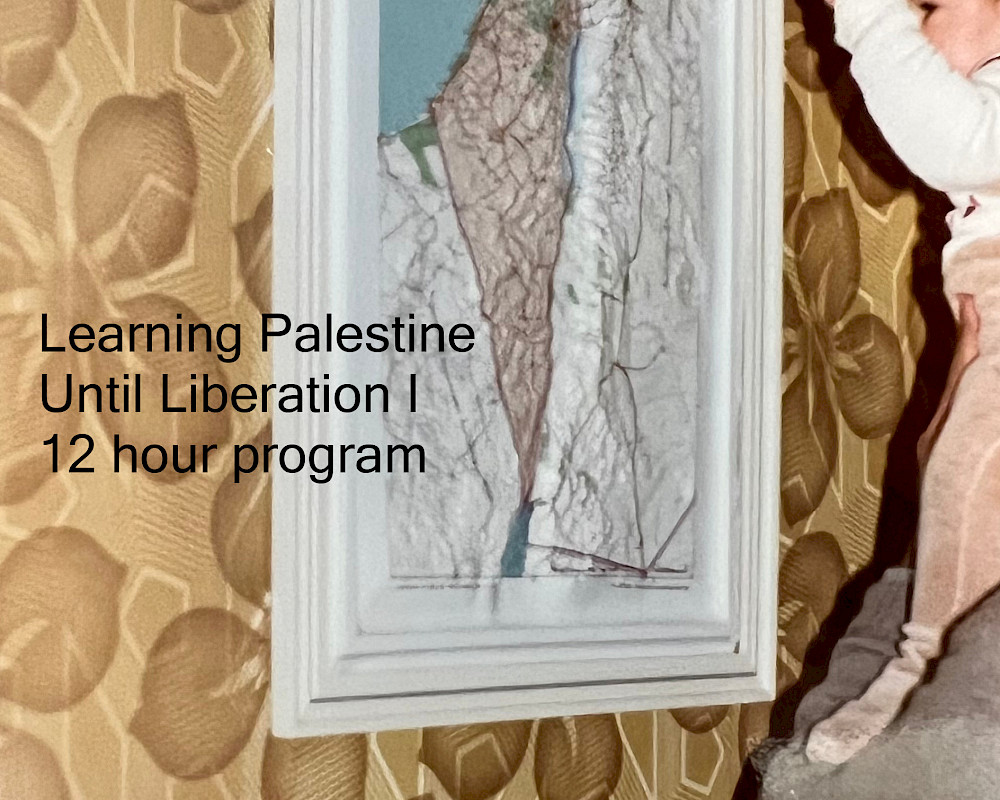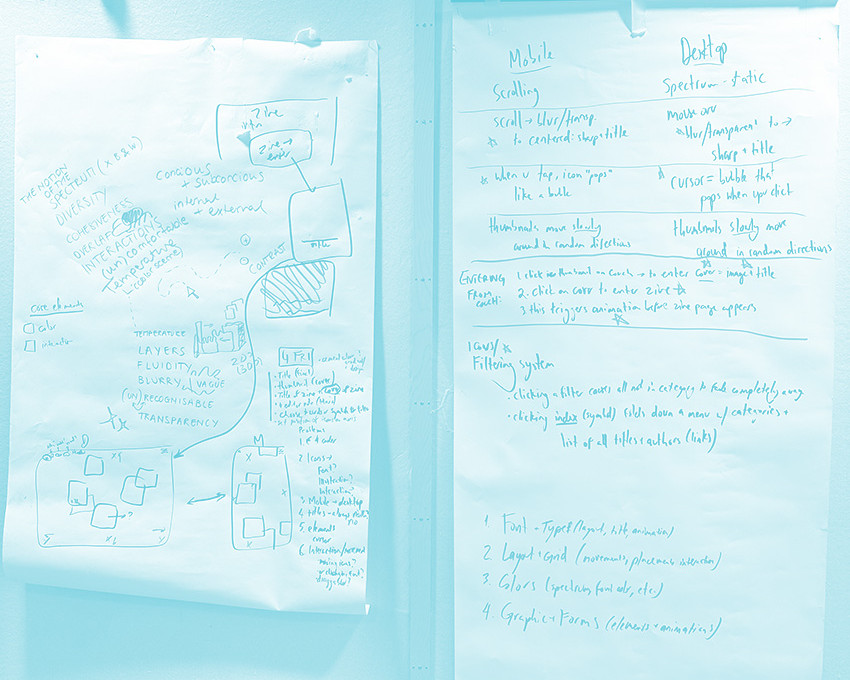essay
Hospitality on demand
Berber Meindertsma
Berber Meindertsma has been with Het HEM since its founding in 2019. Alongside her responsibilities as development manager, she has curated and cultivated public and community programmes for Het HEM. She continues to develop her own research interests by writing on topics concerning hosting, hospitality and resonance in art.
mind
Check-in with... Stéphanie Janaina
Berber Meindertsma speaks with dancer and choreographer Stéphanie Janaina, almost four years after she performed ¡miércoles! at Het HEM.
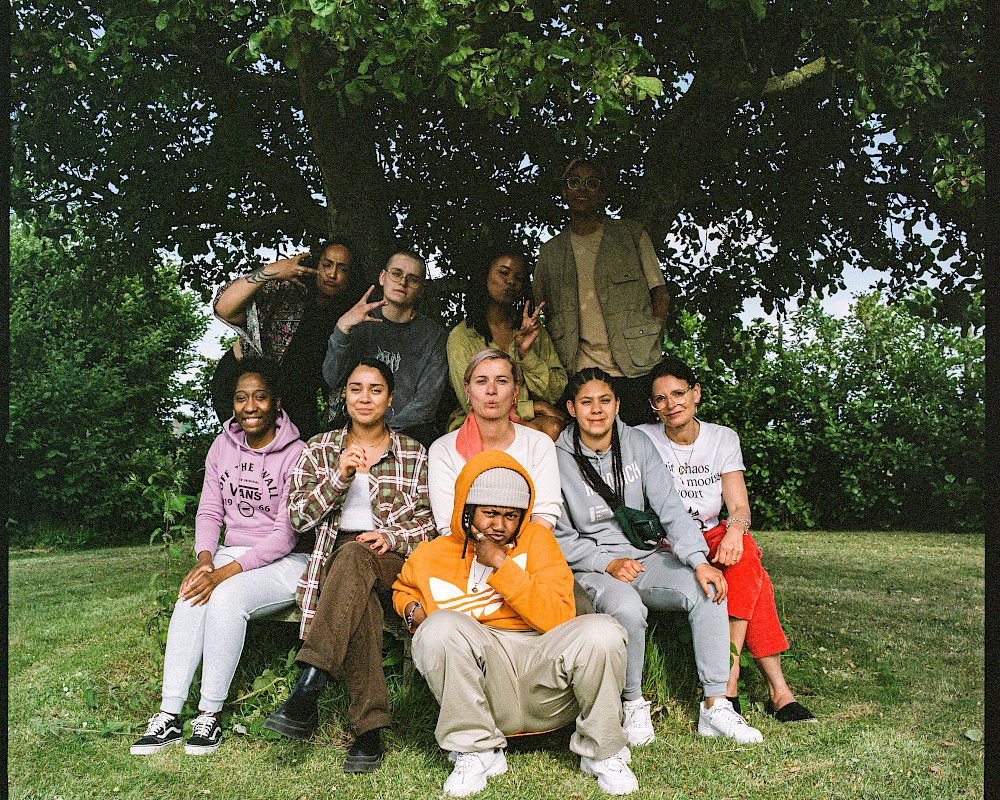
mind
Check-in with… HMTP talents and coaches
After the music video release Vamos by KG and Fabs, a track written during the Homebase Music Talent Programme (HMTP) Writer’s Camp, Berber Meindertsma speaks with them and two of the coaches of the camp.
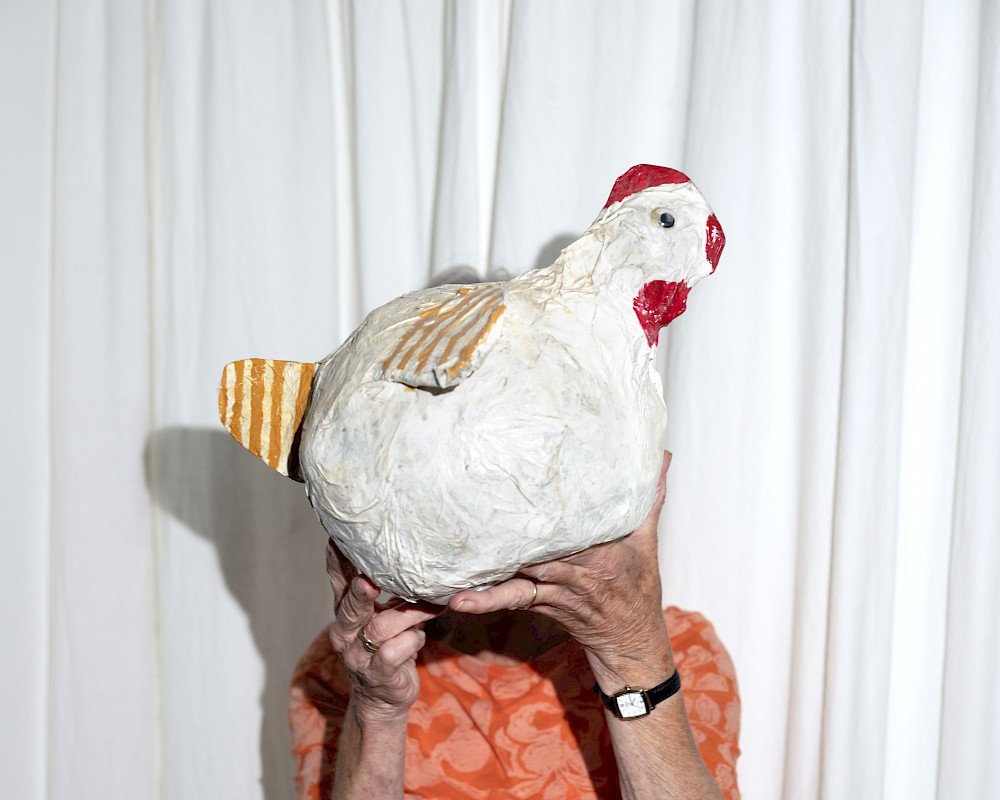
interview
Check-in with... Wil Spier
“If people are interested, they understand everything in the world. The problem is getting them interested.”
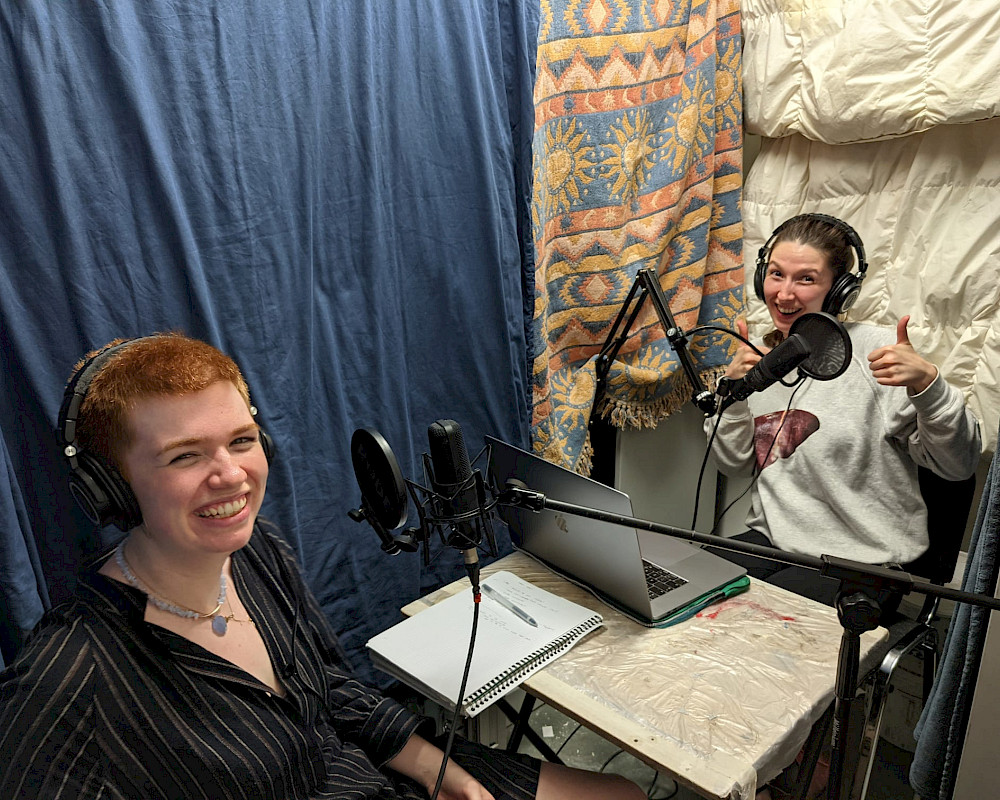
interview
Introducing Future Artefacts FM
From September 2023 to February 2024, The Couch is hosting 4 episodes of the London-based radio show Future Artefacts FM. Together with the first episode, we sit down with the initiators Nina Davies and Niamh Schmidtke to give you the full story behind their radio show.

interview
Check-in with... Sara Koops
Ever wondered what boxing is all about, and what art might have to do with it? Sit back and enjoy this check-in with professional boxer Sara Koops, who participated in the Chapter 1NE Box clinic at Het HEM in 2019.
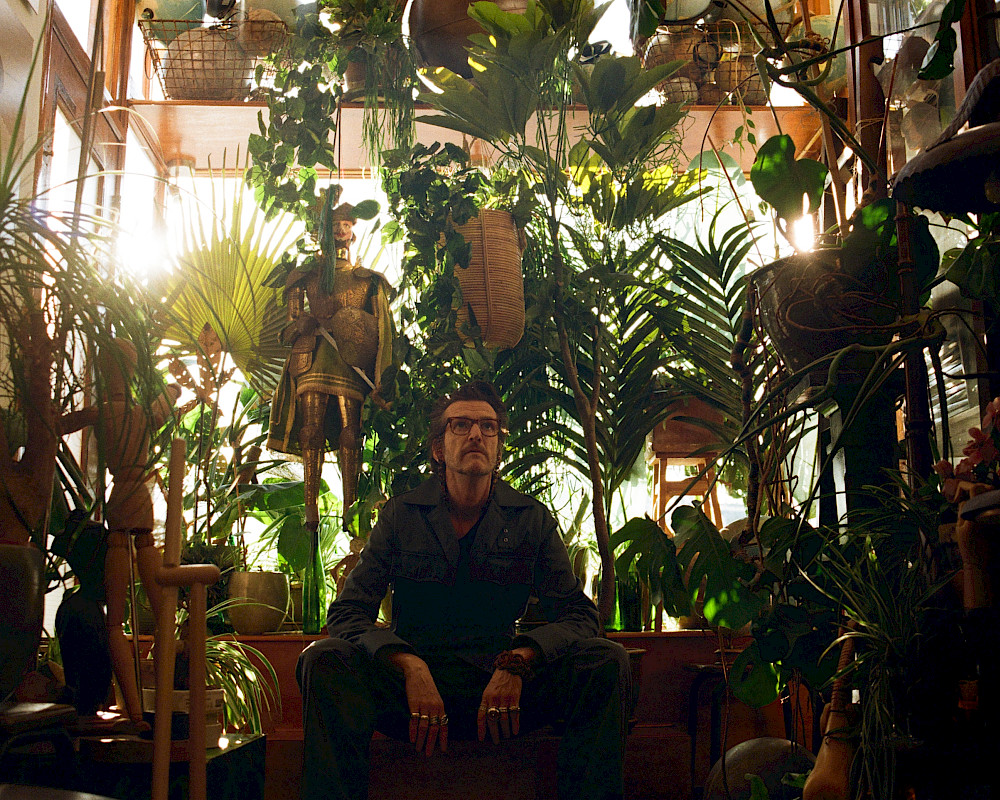
mind
Check-in with... Maarten Spruyt
We sat down and looked back with Guest of Chapter 3HREE Maarten Spruyt, known for his work as a curator, art director and stylist, with an incredible knack for beauty and sensory perception. "I try to make exhibitions which make you look inwards, feel uncomfortable and sit with that for a moment."
23
min read

“Even though well-intended, the hospitality in art institutions can feel strategic rather than sincere. It mostly serves the art institution: it does not lead to a change in who is doing the questioning.”
1. Introduction
Remember couchsurfing.com? The online network through which you can find free accommodation and get in touch with other travellers anywhere in the world? The idea is that you stay at someone’s home or host people at yours on the couch, in a spare room or on an air mattress. It’s a non-profit organisation, started and run by travellers themselves since 2003.
I have used it as a student in places like Seattle, Vancouver and Rio de Janeiro. It enabled me to travel to faraway places on a very tight student budget. But it meant much more than that. What started as a means to quench my thirst for adventure turned out to be a rich learning experience in hospitality. The beauty and the beastliness of it, making my world big and small at once. I have been humbled by the kindness that complete strangers have shown me, for example by picking me up from the station or welcoming me into the family at big birthday dinners. In other situations, I have also felt like I was being held hostage. Dirty rooms and mismatched expectations of the social interactions we would have made me feel uncomfortable. But as I didn’t have the money to pay for other accommodation, I opted for a free couch nevertheless, spending time with my host to return the favour and show my gratitude.
As a free service, what’s at stake in a couchsurfing situation is a social contract based on trust. The online network, with host and guest profiles and the process of sending and accepting surf requests, can be considered a system of “hospitality on request”. This system enables a form of social control and promotes a type of “global travellers’ hospitality”, which is constantly questioned and mediated by its users, whose positions as guests and hosts are interchangeable along lines of familiarity versus identity-based exclusion. But the kind of hospitality that is offered inside the private sphere of the host’s home is behind closed doors. You never know what to expect. Particularly as a free service, expectations of reciprocity become muddied. Guests rely as heavily on the hosts to take care of them as on their own intuition and observations regarding safety.
2. The Couch
As Het HEM is developing its own digital Couch, I’m brought back to these couchsurfing experiences. Though we are still in the early stages of shaping The Couch, I wonder what possible parallels we could draw between the hospitality I experienced couchsurfing and the kind of hospitality that can be offered in a virtual art space. I wonder if the concept of hospitality can provide us with a critical lens to explore what kind of relationships we, the socially engaged, non-profit art world, want to build online. Who are the hosts and who are the guests? What could be the potential of virtual art spaces like The Couch (in contrast to their physical counterparts) in welcoming audiences outside of the art world?
Since the turn of the century, the concept of hospitality has been discussed in art institutional discourse as a tool to explore the socio-political function of art institutions. Hospitality is supposed to have the potential to change power dynamics within the public sphere. The process of hosting during documenta fifteen (the fifteenth edition of the contemporary art manifestation in Kassel), for instance, brought new questions about the significance of hosting and hospitality in art. The temporary host of this edition was ruangrupa, an artists’ initiative from Jakarta, Indonesia, which invited both its own host, Documenta gGmbh, as well as an impressive number of other artists and collectives, to rethink what sort of socio-political relations an exhibition like this recreates. It is important to note here that the term ‘hospitality’ is not listed in ruangrupa’s strategy document (1).
As more art institutions are expanding their focus and activities to the digital world (2), it is important to dive deep into the theory and practice of hospitality.


3. The question of the question
Although it is something we daily experience in various forms, hospitality is a complex concept. The word hospitality holds various associations, cultural connotations and interpretations. It is understood as a civility: the rule by which guests, no matter whether they are known or unknown to the host, should be received and catered to in a friendly manner.
As a concept in the public sphere, hospitality carries political and juridical significance. It is embedded in historical and socio-political systems for dealing with strangers, or the “other”. French-Algerian philosopher Jacques Derrida has discussed the topic extensively in the late 90s and early 2000s, a time marked by growing Western European debates on migration and the so-called ‘refugee crisis’, a time at the brink of the digital age. His thinking is based on Immanuel Kant’s juridical concept of hospitality as the birthright of foreigners arriving at the border of someone else’s territory. It is the foreigner who, with their arrival, raises the question of hospitality. For Derrida, the question of who or what the foreigner might be eventually leads him to the paradox of hospitality as “the question of the question.” (3)
The discussion of this "universal hospitality" reveals how hospitality is conceptualised from the point of colonial-imperialist power relations. Universal hospitality drafts an image of colonial explorers arriving on ‘new’ territory and claiming the right to entry and resources. They were greeted with hospitality, which they abused to make what they found theirs. This hostile form of hospitality still has its effects today, for example in hospitality industries where guests can demand a right to service; the “client is king”. In the context of tourism in (former) colonies, this is particularly problematic. Stuart Hall and David Foster describe the example of Caribbean tourism continuing the structure of subordination and service from colonial times: “the men and women who work in it are not involved in the exercise of some kind of civilizational virtue but in learning to serve other people who are richer and more powerful in every way than themselves.”(4) Hospitality is framed around the discourse and practice of service, and in systems of global capitalism and consumption. (5)
Derrida identifies a narrow meaning of ‘conditional’ hospitality, as it is generally used and practiced in society, and a utopian, pure and absolute ‘unconditional’ hospitality. Hospitality industries are an extreme version of conditional hospitality, with monetary transaction facilitating the condition. These two types of hospitality exist in tension with each other and revolve around the (im)possibility of accepting expected or unexpected “foreigners” (xenoi), people who are unknown to us but have an identity or family name, and “absolute strangers” (barbaroi), people without identities or permits such as refugees or unhoused people. Hosts can only accept those they can recognise and make part of the pact (xenia), a type of reciprocity. “This pact, this contract of hospitality that links to the foreigner and which reciprocally links the foreigner, it's a question of knowing whether it counts beyond the individual and if it also extends to the family, to the generation, to the genealogy.” (6)
"Hospitality can be understood as a system, a pact, linking families of the ‘hospes’."
The conditions of hospitality in entering a pact point to how hospitality can be understood as a power structure regulated by law. This structure determines the ways in which relationships are controlled by the hosts; and how guests, when granted entry, are given a certain (juridical) status and become engaged in reciprocal obligations and responsibilities between the hosts and guests. Hospitality binds them together. As hospitality extends to the family over generations, it systematically excludes people who have no status (yet). In that act, the stranger becomes invisible. Telling in this respect is the etymology of the Latin word ‘hospes’, which means both host and guest. As such, hospitality can be understood as a system, a pact, linking families of the ‘hospes’, which have the potential to be both hosts and guests and interchange positions. Hospitality is the continuation of the hospes’ legacy and positions of power, the land they occupy, as they exclude the ‘hostis’, which can mean both ‘guest’ and ‘enemy’ and is the root of the word ‘hostility’.
Unconditional hospitality would require a situation in which hosts offer their place and resources to unexpected guests without asking for anything in return. This is impossible, however, as with the complete surrender of hosts to their guests, hosts would lose their ability to give. Without possession, markers of spaces and borders, the question of hospitality would disappear. The answer to this problem cannot be found in conditional hospitality Derrida argues, as hospitality depends on the limitless possibility of it. (7) At the heart of the relationship between hosts and guests, therefore, lies a paradox. It is a constant questioning and renegotiation of who is part of the pact, who is part of the problem and who is able to join the conversations about it.
But whose question is it in the first place? Stuart Hall and David Foster criticise Derrida’s thinking by pointing to the “unexamined self-reflexivity” between the subject-position of the host in the gesture of hospitality. (8) As one of the civilities of modern power, hospitality reflects the virtue as well as the social status of the host, which in the eyes of Hall and Foster is the “Euro-American self”.(9) Foreigners only passively pose the question of hospitality to the host. They are the mere object of the questioning of the host to determine what kind of hospitality can be given: a questioning of “moral self-education” resulting in a “deepening transformation of the self of the host.”(10) Hall and Foster argue that Derrida neglects the presence of the foreigners and what could be at stake for them: the question potential guests may ask themselves about the host: “Whatever sort of person you are, how will you treat me? […] What sort of person do you think I am?”(11) The lack of self-reflexivity reveals how deeply rooted the concept of hospitality is in Euro-(American) power structures that were cemented in colonial times and are still in effect today. Only if the host engages in a process of “putting oneself in the place of the other” can the position of the guest become centre of the demand.(12)
This crucial understanding of the workings of hospitality is at the crux of how, though well-intended, the hospitality that is generally offered does not serve the guests but rather the hosts in acts of self-transformation. In that sense, it follows a tradition or custom that perpetuates existing power relations and the consequential identity-based societal divisions. This, I would argue, is the other, more urgent paradox of hospitality compared to Derrida’s philosophical problematic, and it needs our attention.


4. Hospitality in public art institutions
In the art institutional scene, the virtue of being hospitable, welcoming and generous, is understood very well, especially since a broader reckoning with exclusion and institutional racism brought on by the incensed Black Lives Matter movement in 2020. Mission statements of most Western European, British and American contemporary art institutions include aspirations of welcoming everyone and making art more accessible. Institutions invest in museum hosts and mediators as embodiments of an inclusive and welcoming spirit; formulate diversity and inclusivity policies and offer training programmes for staff; create educational programmes to engage new audiences; commission interior designers and architects to literally open the space and make it more comfortable; invite makers, thinkers or parties outside of the artworld to collaborate on programmes.
These gestures of hospitality have been rightfully criticised in art institutional discourse. Influenced by Derrida’s exposure of the paradox of hospitality, curators have discussed the complexity of hospitality in art situations. They point to the danger that exists in interpreting and discussing hospitality in the narrow sense, from the point of being welcoming and wanting other people to feel welcome. This “spontaneous flow of ideas on the topic of hospitality”, as curator Maja Ciric calls it, can lead to the potential abuse of it.(13) Spontaneous interpretations ignore the problematics of hospitality in perpetuating existing power relations, neglecting or masking the social struggles and the need to reflect on whose voices are left out and who this diverse group of potential guests actually are and what they might need.
This kind of spontaneous hospitality can feel strategic rather than sincere. It mostly serves the art institution in growing its reach and impact: it is an act of self-transformation, but it does not lead to a change in who is doing the questioning. Conditions of the art institution’s hospitality, such as paid entry, opening times or the roles and positions of visitors and artists as guests, remain intact.
"Let us say yes to whomever or whatever turns up”
What is needed is a more critical reflection on the art institution’s failure in offering hospitality to everyone – a recognition and acceptance of its limitations. To that effect, Charles Esche, director of the Van Abbemuseum in Eindhoven, proposes a type of ‘radical hospitality’ based on Derrida’s call to “Let us say yes to whomever or whatever turns up.”(14) In a 2012 talk in Chicago, Esche carefully sets out how hospitality could unlock “the dormant potentiality of democratic deviance” that art institutions can offer in society when taken seriously. Being a host, Esche argues, is thinking about all the things you can offer. Being a radical host means saying yes and handing over the keys to the other – effectually disappearing – which is at the root of Derrida’s idea of unconditional hospitality.
Esche asserts that, as of now, institutions have failed to do both. They have not reflected on what they can offer as deviant spaces besides the more obvious resources such as art and knowledge. For instance, their expertise in harvesting and dealing with questions, confusion and uncertainty is valuable. More importantly, they can provide access to non-mainstream values – like friendship and care – that fall outside of the prevailing neoliberal state and capitalism. Additionally, I would add that institutions have both physical and virtual space. With these resources, institutions can create the conditions for differing opinions to exist next to each other in a respectful way.(15)
Institutions can only offer these resources if someone asks for them, as hospitality is always an answer to a question. This has proven to be difficult, as the questions art institutions receive are mostly from people who visit art spaces to look for affirmations of their taste and position within society. The second problematic sits with the fact that art institutions have a strong sense of self. Arguably this is partly due to their dependency on public and private funding, as funding bodies want to be able to recognise the art institution as unique and thus worthy of funding. It can be frightening for institutions to let go of “aesthetic and moral control”, the careful curatorial selection which make up their identity.(16) If they give away part of their identity, they might risk losing financial support.
This discussion points to how non-profit art institutions in Euro-American contexts need to navigate a neoliberal capitalist system, where art is marketed as a product for visitors to consume. This system doesn’t serve the values it purports to nurture. Consequently, the hospitality that is offered follows the logic of hospitality as a service.
Esche asks how institutions can “create the conditions in which the issues of democratic deviance and radial dissatisfaction with neoliberalism can be tabled in a way that they may be answered in an art institution.”(17) An answer to this, Esche suggests, is working together with artists to generate the formulations of these questions.(18)
Can virtual art spaces contribute to this? Esche’s question implies that it might be necessary to make further changes to art institutions for them to be able to tackle the problem of authority. Alex Farquharson has discussed the potential of websites as gestures of generosity: “Websites can function as second venues, offering access to the knowledge the institution produces beyond the constraints of geography and time.”(19) But this understanding of websites lacks a reflection on the authority of art institutions. It rather points to the urge institutions have to expand. What, then, could be the potential of virtual art spaces in encouraging art institutions to give up a part of their sense of self in order to welcome new audiences and questions?


5. Alternative virtual spaces
The digital creates possibilities for people to create new virtual spaces in which they can behave and interact in ways which may not be possible in real life. They bring their experiences and questions from the physical world to the online realm where they connect with people, share their thoughts, test out ideas and gain more knowledge on a particular topic. As such, the experiences and questions that are brought online can give insight into the problematic relationships or systems in the physical world.
"Advancements of digital technologies such as AI further the polarisation caused by this fear of the other and ignite an “us versus them” mentality."
In the early days of the internet, Derrida already pointed out how new technologies restructure space and the sense of self in such a way that what constitutes it also opens it to intrusion.(20) Derrida warns of the xenophobic sentiments this can bring about: “Anyone who encroaches on my ‘at home’, on my ipseity, on my power of hospitality, on my sovereignty as host, I start to regard as an undesirable foreigner, and virtually as an enemy. This other becomes a hostile subject, and I risk becoming their hostage.”(21) The internet creates spaces where the sense of self – of the hosts and the guests – gets lost. Boundaries are crossed and identities revealed consciously, through acceptance of cookies and doxing, or unconsciously. This creates a fear of, hostility towards, the other. Advancements of digital technologies such as AI further the polarisation caused by this fear of the other and ignite an “us versus them” mentality.
The potential of the internet, understood as a technology creating social spaces, lies in the possibility of revealing the structure behind it and creating alternative spaces based on conditions which have been set by the users themselves. The couchsurfing network is a good example: it is a system of hospitality developed according to a set of shared values which apparently fall outside of neoliberal society. People who want to join this pact need to identify themselves first by creating an online profile. The webhost then accepts or denies entry. As this system is so controlled and leaves no room for unexpected guests to arrive – one of the prerequisites of hospitality to be able to exist – it is difficult to talk about hospitality online. Furthermore, Derrida concludes that without possession, markers of spaces and borders, the question of hospitality would disappear. If, online, property is shared among the users who are creating the conditions for these virtual spaces to exist, what impact does this have on how (new) users are received and interact with each other? And if hospitality is indeed out of the question, does this leave us with hostility instead?
It takes more research to fully understand how online hospitality works compared to hospitality in the physical world. Within the confines of this essay, I would like to again use the example of couchsurfing to point out where I think the hosting of people in virtual art spaces should be geared towards. The hospitality which is promoted through the couchsurfing network is situated, and must be practiced, in the physical world. How this exactly plays out cannot be controlled. As a guest you need to be prepared to be unprepared for the expected or unexpectedness of the situation – a prerequisite for Esche’s radical hospitality.
Virtual art spaces should follow a similar trajectory. Their goal should be to inspire their virtual guests to look at the world differently and be open to the unexpected turns life can give. Not to make them glue their eyes to a screen or tell them to visit physical art institutional spaces per se, but to stimulate them to venture out into the world with an informed and broadened perspective. The hospitality that is offered online should focus on that goal; it should inspire questions from all sides, genuine questions about the other and our position in the world.
But how do people find these virtual art spaces? Who will be knocking on their door? This very valid question by Esche is a hard one to answer for online art spaces, but it is vital in the effort to evaluate their potential in welcoming new audiences and questions from outside. Because of the competitive and extractive nature of online relations between user and creator, art institutions need to actively drive people to their virtual spaces, either through marketing or collaborations with artists or other parties. And how can we be sure that guests visit these virtual art spaces to look for something other than affirmations of their taste and social status?
"Artists are not autonomous geniuses, working in silos, but part of the public, grappling with questions that exist within the physical world."
6. Epilogue
The discussion of hospitality has so far shown us that it is no catchall term. The history of the concept should be considered before we start speaking about hospitality as a tool to open art spaces to wider audiences or invent new practices and gestures around it. If not, hospitality merely functions as a mask under which current power relations are perpetuated. The fact that hospitality does not appear in ruangrupa’s strategy guide is probably because they understand very well the colonial connotations of the term.
I recently attended a panel discussion where all sorts of spontaneous interpretations of hospitality were on display. While the panellists did their best in trying to get to the core of what is at stake in hospitality, they forgot to take its history into account. The host and speakers mostly referred to hospitality as an attitude of ‘being open’, thus dodging any critical reflections or questions. This caused confusion in the audience and frankly led only to more (off-topic) questions. The conversation made it very clear how important it is that we first need to scrutinise the theory and historical significance behind hospitality before we decide to aspire to it and use it as a tool.
As non-profit art institutions functioning within neoliberal societies, where hospitality is sold as a service and promoted as a civilised virtue, what value does the concept and practice of hospitality have? Monetary transactions – value-based reciprocity – constitute the pact the hosts and guests enter. Internet technologies only exacerbate this reciprocity by creating spaces which allow the mining and selling of personal user data in exchange for access to information or functionalities. Online, art institutions still need to compete with others and market themselves as unique spaces – perhaps even more so than in the ‘real world’. Furthermore, the erasure of the obvious distinctions between hosts and guests on the internet, and the replication of capitalist structures and values, creates a fear of the other. We begin to identify ourselves by what we are not.
As a “copy” or deviant version of the physical art institution, the virtual space has the potential to allow others to enter and change the structure or institutional machine, but only through radical – and, as yet, only theoretical – transparency. The goal of this shift should be set in the physical world. For example, virtual art spaces can bring about a change in perspective on who artists are and what they can do. Artists are not autonomous geniuses, working in silos, but part of the public, grappling with questions that exist within the physical world. The question of the question of hospitality is enmeshed in international political economy and social value systems. Is the world ready for such a change in the image and working of an art institution? What would it take to give up neoliberal values of individualism and singularity?
Footnotes
1. ruangrupa, Siasat, 2011. Accessed online, 29 June 2023: https://www.sculpture-center.org/files/siasat.pdf
2. The creation of The Couch as a virtual art space does not stand on its own. It follows a broader development of art institutions extending their websites with separately existing online platforms to continue their work in championing art to broad audiences. For example, Somerset House in London has developed Channel as its “new curated online space for art, ideas and the artistic process.” In 2020, Pioneer Works in New York launched Broadcast as its “virtual and annual print magazine that encourages radical thinking across the arts, sciences, music, and technology […] through narrative-driven journalism, essays, criticism, ruminations, video, audio, and much more.”
3. Anne Dufourmantelle and Jacques Derrida, Of Hospitality. Anne Dufourmantelle Invites Jacques Derrida to Respond, trans. Rachel Bowlby (Stanford, CA: University Press, 2000), 29.
4. Stuart Hall & David Scott, “Hospitality’s Others: A conversation” in The Unexpected Guest – Art, writing and thinking on hospitality, ed. Sally Tallant and Paul Domela, exhibition catalogue, Liverpool Biennial (London, Art Books, 2012), 294.
5. Idem, 293.
6. Anne Dufourmantelle and Jacques Derrida, Of Hospitality. Anne Dufourmantelle Invites Jacques Derrida to Respond, trans. Rachel Bowlby (Stanford, CA: University Press, 2000), 21.
7. Ibid.
8. Stuart Hall & David Scott, “Hospitality’s Others: A conversation” in The Unexpected Guest – Art, writing and thinking on hospitality, ed. Sally Tallant and Paul Domela, exhibition catalogue, Liverpool Biennial (London, Art Books, 2012), 291.
9. Idem, 292.
10. Idem, 291 – 292.
11. Idem, 292.
12. Ibid.
13. Maja Ciric, “The (Un)spoken Abuse, curatorial hospitality through the lens of criticality”, in Hospitality, Hosting Relations in Exhibitions, ed. Beatrice von Bismarck and Benjamin Meyer-Krahmer (Sternberg Press, 2016), 204.
14. Charles Esche, “Practicing Hospitality”, a panel discussion at “Symposium: Of Hospitality,” SMART Museum of Art, The University of Chicago, May 5, 2012, see Vimeo, accessed May 15, 2023, http://vimeo.com/42269151.
15. Ibid.
16. Charles Esche, “Temporariness, Possibility and Institutional Change” in In the place of the public sphere?, ed. Simon Sheikh (Berlin: B Books, 2005), 124.
17. Charles Esche, “Practicing Hospitality”, a panel discussion at “Symposium: Of Hospitality,” SMART Museum of Art, The University of Chicago, May 5, 2012, see Vimeo, accessed May 15, 2023, http://vimeo.com/42269151.
18. Ibid.
19. Alex Farquharson, “Institutional Mores” in Institutional Attitudes, Instituting Art in a Flat World, ed. Pascal Gielen, (Amsterdam, Valiz, 2013), 255.
20. Anne Dufourmantelle and Jacques Derrida, Of Hospitality. Anne Dufourmantelle Invites Jacques Derrida to Respond, trans. Rachel Bowlby (Stanford, CA: University Press, 2000), 61
21. Idem, 53-55.
